Violinist Marie Schreer introduces a multi-disciplinary programme that examines themes of belonging, identity and mother tongue

Discover more Featured Stories like this in The Strad Playing Hub
The search for belonging and identity is one of the most universal human experiences, yet it can also feel intensely personal. It is often tied to our own histories, the places we have lived, and the languages we speak. As someone who has moved countries and cultures, never lived in one place for more than seven years, and learnt to be fluent in a second language, these thoughts have been ruminating in my head throughout my life.
Over the past two years, I have curated and commissioned a project that explores these notions through music, sound and text, offering a personal reflection on these timeless - and timely - questions, while hopefully also resonating with anyone who has ever felt uncertain of their place in life.
When we wonder if we belong and where we belong, we can approach this from infinite angles; geographical, emotional, spiritual, cultural… We can feel at home in the place we live; in the circles we move within; or in the industry in which we are expressing our creativity. ‘Home’ has varying definitions for everyone, and the word carries a very different weight for different people.
Throughout the process of this project, there have been many moments where it felt to me personally like a luxury to be torn between various places I could call my home while wars are waging in the name of homeland and origin in other parts of the world. This collaboration between the four of us is a small representation of the complexities of ‘home’ and ‘belonging’ viewed through a lens that ranges from the deeply personal all the way to global and political perspectives.
I am eternally grateful to have been able to bring on board three of my favourite artists: composers Aaron Holloway-Nahum and Ashkan Behzadi, and poet and spoken word artist Taher Adel. All of them have their own stories, and their own questions and answers while searching for who they are, where they fit within this world, and how they express their identity and sense of belonging through the art they make.
‘Home’ has varying definitions for everyone, and the word carries a very different weight for different people
The project began with the idea of a new piece for me from long-term collaborator Aaron Holloway-Nahum. If I Am From Somewhere, I Am From There is deeply personal and intricately crafted, built from interviews with me and my family. The piece combines acoustic violin playing with video and an electronic soundscape that weaves together recorded audio from those interviews, voice messages and clips from my tours and travels, grounding the music in real, lived experiences.
One of the most striking features of Aaron’s work is its focus on precision and nuance, particularly in rhythm and microtonality. It is a work that pushes boundaries, not just through the technical demands of the violin, but also through its exploration of identity. It continuously draws from my musicianship and artistic sensibility, challenging me to achieve seamless coordination with the electronics while leaving me space to improvise and play into the sound world.
The connection between violin and electronics is integral to the piece, with the two elements blending in ways that highlight the fragility of memory and the fluidity of identity. If I Am From Somewhere I Am From There is both a reflection on where I have come from and a look forward to where I might be going—an ongoing journey of understanding and reconciling the past, the present, and the places that shape our lives.
Ashkan Behzadi’s Ballads: Oblique is a deeply moving and evocative exploration of the concept of home, influenced by both personal and political contexts. In collaboration with Taher Adel, the work delves into six Arabic names for ‘home,’ which are explored through six ballads for violin and six poetic verses. Initially conceived as a meditation on the idea of home, the piece took on new urgency and emotional depth as the political climate in Palestine became more brutal, particularly during the escalation of violence in Gaza.
Ashkan’s composition transformed in response to the stark realities of the conflict, adding a poignant layer of social commentary. With this piece, Ashkan wrote six ballads as a dedication to six Palestinian children who tragically lost their lives during the war. He sees the ballads not as his own compositions, but as ’imaginary pieces’ that might have been written by these children had they not been killed. The music, therefore, becomes not just a response to the idea of homeland, but a powerful reflection on the lost potential of these children and the collective loss of humanity in the face of war.
The poetry written by Taher Adel complements this by exploring the multiple translations of the word ‘home’ in Arabic while also considering its shifting meaning in the context of migration and exile. Through my singing in some movements combined with the fleetingly delicate and wildly raw violin playing alongside Taher’s voice weaving through the movements, Ashkan evokes the deep, often painful emotional resonance of longing for home but also the sorrow and grief experienced by those who have lost theirs due to circumstances far beyond their control. Ballads: Oblique is a powerful political statement that offers a poignant reflection on the notion of home and what it means to belong, particularly in a world marked by borders, conflict and forced migration.
The final piece in the project, All Things Must Be Audible At All Times, is one I composed myself, emerging from an improvisation focused on the relationship between language and identity. As a bilingual person who grewn up in Germany but has made her home in the UK for 15 years, I have long been fascinated by the ways language shapes our sense of self. This piece explores the inner conflict of being immersed in multiple identities and imperfectly articulating thoughts in a second language, with the music serving as an attempt to express these nuances. It is a journey into how language influences how I think, how I relate to others, and how I relate to my violin as my most objective voice.
The idea for this project arose from a desire to understand and articulate feelings of disconnection versus belonging and being transient versus being rooted. These contemplations are experienced by many who navigate various cultures, languages, and histories and I am forever fascinated by everyone’s individual stories and views. Is it possible to truly, fully belong in multiple places at once, or must we always choose one place to call ‘home’?
This programme will premiere on 10th April at Kettle’s Yard in Cambridge, with additional performances throughout 2025 in the UK, Spain, and the Netherlands. It will be released later this year as my debut solo CD until between, recorded in Cologne for a co-production with Coviello Contemporary and Deutschlandfunk.
Heartfelt gratitude goes to PRS Foundation’s Open Fund for Music Creators, the Vaughan Williams Foundation, Francis Routh Trust and the Canada Council for the Arts for their generous support towards these commissions, and to all presenters who provide a platform to share these truly incredible works.
Read: From screen to strings: concert works by screen composers
Read: Andrea Casarrubios on her Concerto for Cello and Orchestra, ‘MIRAGE’
Discover more Featured Stories like this in The Strad Playing Hub
The number one source for playing and teaching books, guides, CDs, calendars and back issues of the magazine.
In The Best of Technique you’ll discover the top playing tips of the world’s leading string players and teachers. It’s packed full of exercises for students, plus examples from the standard repertoire to show you how to integrate the technique into your playing.
The Strad’s Masterclass series brings together the finest string players with some of the greatest string works ever written. Always one of our most popular sections, Masterclass has been an invaluable aid to aspiring soloists, chamber musicians and string teachers since the 1990s.
The Canada Council of the Arts’ Musical Instrument Bank is 40 years old in 2025. This year’s calendar celebrates some its treasures, including four instruments by Antonio Stradivari and priceless works by Montagnana, Gagliano, Pressenda and David Tecchler.

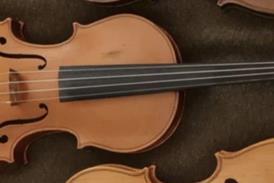
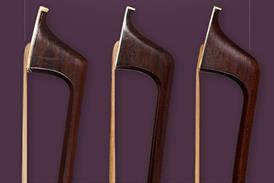
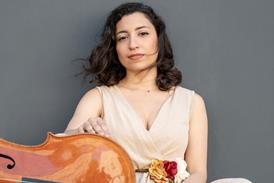
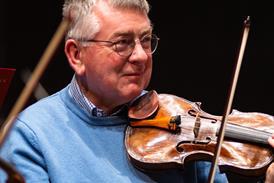
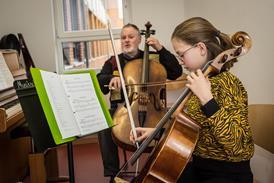
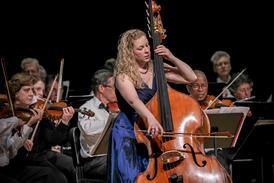



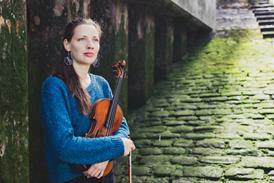
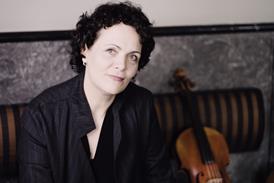
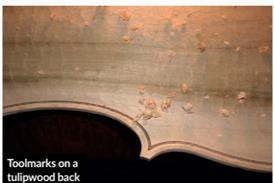
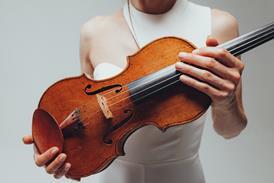
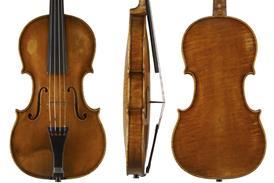























No comments yet